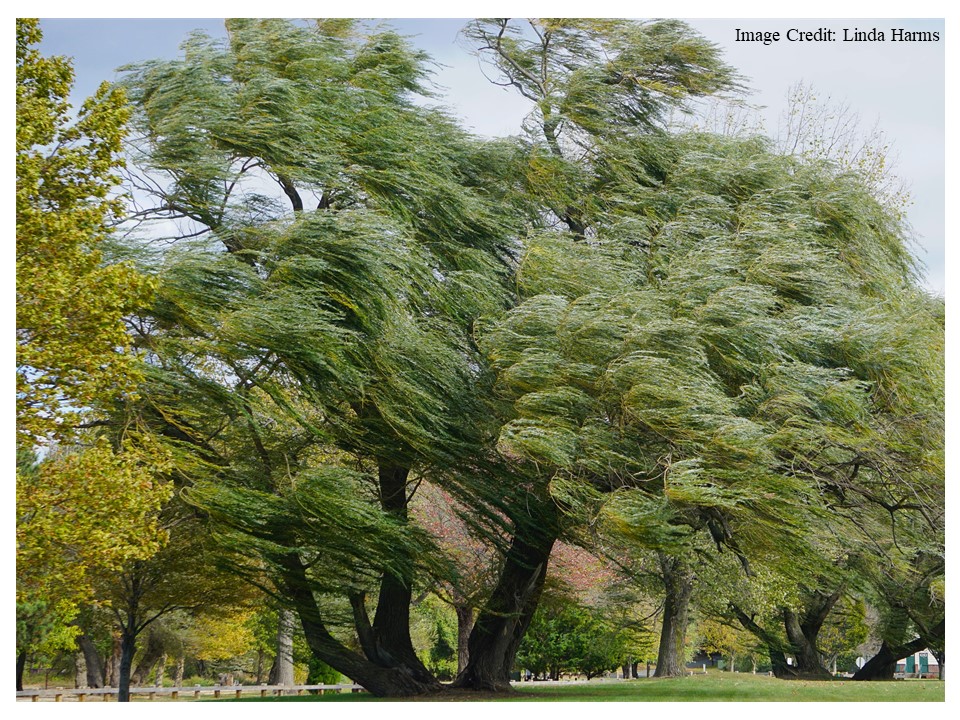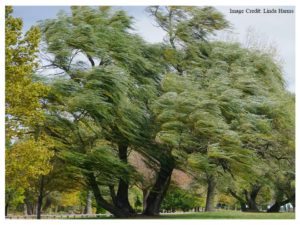
An amazing discovery becomes an inspiring analogy:
Researchers at BioSphere 2 noticed a bizarre series of events: their trees kept collapsing under their own weight.
Why on earth would trees collapse? It doesn’t happen outside the BioSphere; so why would it happen inside?
And then the researchers figured it out. The BioSphere doesn’t have wind.
Trees react to the stress of wind by growing stronger. If they don’t get that beneficial stress, they can’t stand up when they become adult trees.
And here’s the heart-warming bit: that’s true for humans too.
As we grow and develop, we need some modest, reasonable stresses in our lives. Those small stressors make our emotional “tree trunks” strong, so we can manage the greater stresses of adult life.
I really want to make an uplifting poster right now — don’t you?
First Things First
This story that I’ve told begins with science: “Researchers at the Biosphere…”
And so, when I read that story, I felt a small shudder of delight. I can use this story to explain to students — and parents, and teachers — the benefits of reasonable/modest stresses in their lives.
After all, it’s a GREAT story, and a great analogy.
Even better, I can share the research behind it. (That’s what I do for a living: share research with teachers, students, and parents.)
However, the website where I first read that story doesn’t link to any research.
Hmmm.
So, I started looking.
This trees-need-wind story (and its uplifting analogy) shows up frequently on the interwebs. In fact, I think I notice two waves — one around 2013, another around 2020.
But, exactly none of the articles included any scientific links — much less links supporting the claim.
Glimmers of Hope?
When I switched from Google to Google Scholar, I did find this brief report.
It appears in Science magazine — a highly reputable source — and includes this sentence:
The trunks and branches of large trees became brittle and prone to catastrophic and dangerous collapse.
So, have I found the scientific backing that this analogy was missing?
Alas, this sentence is but one part of a long catalogue of problems in BioSphere 2, as noted in that report:
Vines grew “exceptionally aggressive[ly].”
19 of 25 vertebrate species went extinct.
“All pollinators went extinct.”
CO2 levels, oxygen levels, temperature, and light exposure all went haywire.
And, NONE of these problems has much of anything to do with wind.
In fact, the word “wind” doesn’t appear in this brief article.
Simply put: as far as I can tell, the whole “wind makes trees stronger” story sounds great, but has no research backing — certainly not at Biosphere 2.
Some Conclusions
First: does wind help strengthen trees?
Maybe.
I’ve been reading about something called — believe it or not — “reaction wood.” You can read about it here.
Second: does manageable stress benefit people in the long run.
Sure.
Check out “Yerkes-Dodson.”
Third: should we use uplifting-but-false analogies to communicate important scientific truths?
As long as Learning and the Brain is here, heck no.





